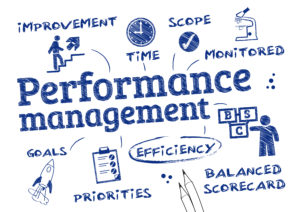 The BPO and call centre managers lead teams that may comprise of tens to hundreds of agents. They make use of Workforce Management (WFM) tools to schedule and organise the workforce in an optimum manner. The questions that are asked from the BPO managers in an interview are based on the people and process management. Let us look at them.
The BPO and call centre managers lead teams that may comprise of tens to hundreds of agents. They make use of Workforce Management (WFM) tools to schedule and organise the workforce in an optimum manner. The questions that are asked from the BPO managers in an interview are based on the people and process management. Let us look at them.
1. What are your challenges?
Though the BPO industry had grown significantly in the last few years it is not devoid of the challenges. The biggest of them all is the a) high attrition rate which varies between 25 to 40%. On an average, the Indian call centre employee just works for a year in a company which is just one-third of what it is the UK. The second challenge is b) the emergence of this industry in a big and competitive way in the Philippines, China, Vietnam and other neighbouring countries. c) The appreciation of the rupee and the government taxation rules also play spoilsport in the growth of the BPO industry. The other significant challenges are d) reduction in profit margins due to increasing operating costs and e) anti-outsourcing laws being framed in the US and the UK.
2. What are your weaknesses and strengths?
It is perfectly normal for a human being to have weaknesses and strengths but you should know how to put them forth in an interview. You may talk about your eagerness to support your team members as your weakness. This delays your work and you end up spending more time in the office. Another one could be a non-tolerance of badly spoken English. You cannot stop yourself from correcting the grammar and word pronunciation if you come across it. It earns you a bad name with friends, colleagues and agents.
When it comes to strengths we normally give a stereotyped answer that is “people management.” Instead, you could be talking about your multi-tasking ability. This will give the confidence to the interviewer that you are quick; manage your time, and able to do the work that may be required from you.
3. How will you do the performance management of your team?
There are a variety of parameters that can be used for the performance management of your team. These are: a) Communication skills, b) Attendance, c) Call response quality, d) Escalations, e) Productivity, f) Co-operation with the team, and g) Client appreciations. The criterion can be defined to suit the organisation and to work out a complete Performance Management System (PMS).
4. How will you do the appraisal for your team?
Once you have the PMS in place you can define the KPIs and KRIs. Everyone is aware of the Key Performance Indicators (KPIs). They are acted upon by the BPO manager, CEO and the senior management. All the staff and agents understand the KPIs and the corrective measures to be taken. The responsibility can be fixed to the individuals or teams. Also, these can be tracked and measured round the clock. Thus, the appraisal for the team can be done using the KPIs linked to the PMS.
5. What are KRIs and how they are different from KPIs?
KRIs are nothing but the Key Result Indicators. They are generally financial in nature and the responsibility for the same lies with the CEO. The staff and management cannot gain much from them as they do not know how to control them. The KRI is a resultant of many activities managed through a variety of performance measures. They are measured on a monthly or quarterly basis and are used for the presentation to the Board to reflect on the progress of the BPO or call centre.
6. How will you control the attrition?
It is a well-known fact that salary checks alone cannot control the attrition. A lot of other aspects like career security, indirect benefits, communication, and morale boosters are important for employee retention. By taking the following measures you can definitely cut down on the attrition rates: a) Optimize hiring by sharing performance expectations, b) Increase the training programs, c) Increase monitoring linked to customer satisfaction d) Establish clear and effective communication, e) Set up recognition and reward programs, f) Provide coaching for the needy, g) Arrange skill development programs, h) Offer promotion linked hierarchy, i) Provide the best equipment and software, and j) Focus on improving the work conditions.
The BPO management is becoming tough with the increase in the competition. However, it is possible to manage the same by moving with the times. These relevant answers can get you a manager’s job in the BPO and also help you to excel in your position once you start practising them. 



This is great. I was looking for the comprehensive article on the interview questions for BPO managers. Finally I have the information in a concise format which is easy to expand. Thanks
One question that is always asked from the BPO managers is on controlling attrition. Thanks for giving so many leads to answer the question. I can develop the content on each theme based on my BPO experience. Very well written article.
Good evaluation parameters for performance management. I have modified the evaluation sheet for the staff in the BPO based on it. The HR lady was happy with the modifications. The assessment takes place in August every year and we are ready in time. Thank you for the valuable inputs.
You are absolutely right on the issues facing the BPO industry. The coverage of the prominent issues at one place has helped me get ready for my next interview. Thanks.
I have been telling that I am good at managing people as my strength in the interviews. That got me a very lukewarm response from the interviewers. After going through this article I have better answers to this question. Thanks for providing the right answers.
It’s going to be finish of mine day, however before end I am reading this great paragraph to improve my knowledge.